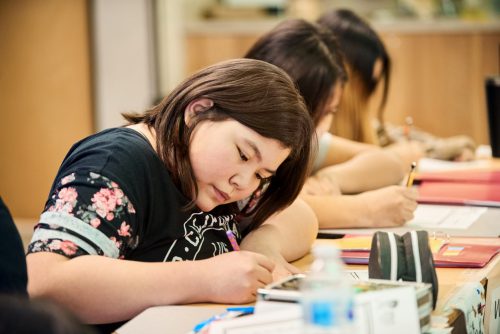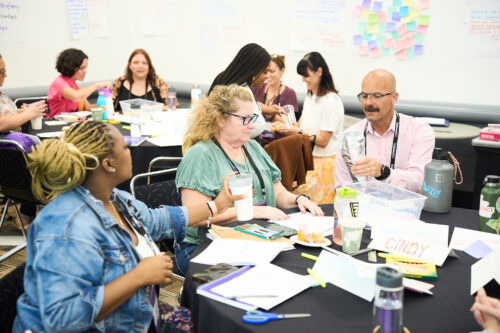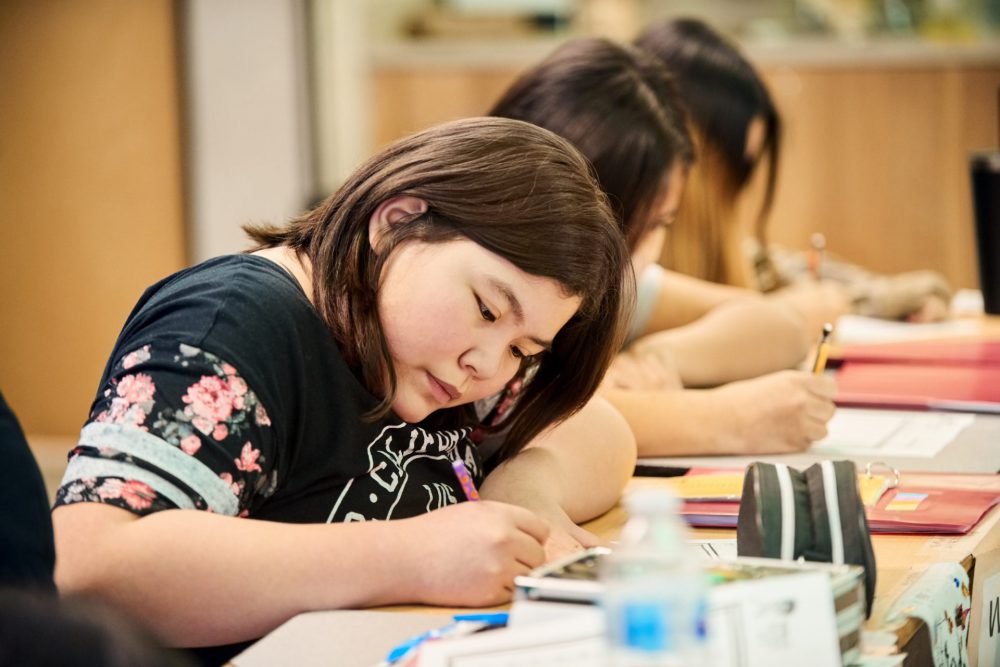
By Valery Dragon, Vice President, Leadership Programs
This is the second blog in a three-part series in which we consider how actions, beliefs, and knowledge impact leadership and identity.
During my first year working at UnboundEd, our CEO invested in a trauma coach whom all leaders in the organization had to meet with for required learning. I was intrigued. A trauma coach? At work? How would a trauma coach would improve my ability to lead my team more effectively? When I first met with the coach, she asked me to name what I carried. I looked at her quizzically and then paused to go through my mental library of professional development past. After about two minutes, I started to respond by naming my identity markers. She graciously allowed me to finish, even asking some follow-up questions about the importance of some of my shared markers; however, I could tell that I hadn’t truly answered her question.
When I recounted this first meeting with my manager, she shared some of Mark A. Williams’s work and UnboundEd’s Anti-Bias Toolkit. She explained that much of the content our organization develops is incumbent on each team member’s commitment to doing the self-work, as our CEO Lacey Robinson says in Justice Seekers, of “uncovering the lenses and layers” that dictate how we see and engage with the world. That was the first time I had ever considered that my beliefs weren’t original to just my lived experiences but also heavily influenced by America’s layered history. I did what Lacey always pushes us to do when met with a growth opportunity: I sat with myself.
When I considered the details of my leadership, I thought about the details of my beliefs. Were my beliefs productively contributing to equitable outcomes for those who have been historically marginalized? Leading for equity requires consistent reflection about one’s beliefs and the beliefs or lenses the system values. When working with school leaders, we reflect on who we are to deepen our understanding of how our beliefs have been formed and which beliefs must be challenged, adopted, and/or adjusted.
I invite you to “sit with yourself” and assess the beliefs that have shaped your leadership. Think about your:
- Instructional beliefs: What do you believe is the purpose of school, and how does that align with the content to which students are exposed?
- Cultural beliefs: What do you believe is the school’s responsibility to ensure that students are welcomed as they are?
- Operational beliefs: What do you believe must be true to the design of a school that champions equity?
With these considerations, take the following assessment to help facilitate an authentic reflection of your instructional, cultural, and operational beliefs.
Read the Blog Series


Leadership & Identity: Beliefs

